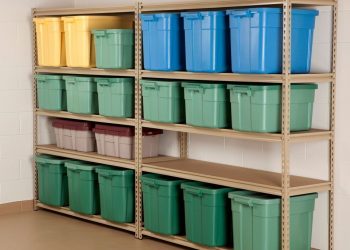Aging causes changes in the body that can affect your nutritional needs. Health conditions, medications and lifestyle changes can cause vitamin deficiencies and other issues. Choosing the right foods and taking supplements can help.
Fewer Calories
Since older adults tend to be less physically active than younger people, they generally need fewer calories to maintain their weight. If you become less active with age, but you continue to eat the same number of calories, you can gain fat, particularly around your abdomen.
More Nutrients
Even though older adults require fewer calories, they need the same amount of nutrients, or possibly even more, than younger adults. Protein, calcium and vitamins D and B12 are particularly important for senior citizens, but many don’t get enough.
People tend to lose muscle mass as they get older. That increases the risk of bone fractures and poor overall health. As you age, incorporate more protein-rich foods into your diet to slow down or prevent muscle loss. Resistance exercise can also help you maintain muscle mass.
Calcium is necessary for strong bones and vitamin D is needed for the body to absorb calcium. Senior citizens tend to absorb less calcium due to a vitamin D deficiency. That can lead to bone loss and a higher risk of fractures. Make sure that your diet includes plenty of calcium-rich foods, such as dairy products and leafy green vegetables. You can get vitamin D from fish or supplements.
Vitamin B12 is necessary for the production of red blood cells and healthy brain function. Many older adults have a vitamin B12 deficiency. You can get the amount you need by eating foods that are fortified with vitamin B12 or by taking a supplement.
Deficiencies in magnesium, potassium, iron and omega-3 fatty acids are also common in older people. You can get these nutrients from fruits, vegetables, lean meats and fish.
Many older people experience constipation due to reduced physical activity and medication side effects. Diverticular disease, which causes inflammation or infection in the colon, is also common. A high-fiber diet filled with fruits and vegetables can help you avoid these problems.
Enough Food and Water
Older adults tend to eat less than they did when they were younger. This can be due to a variety of factors, including changes in taste, smell and levels of hormones that signal hunger and fullness. Illness, medications, dental problems and changes in lifestyle and daily routines can also play a role. If you struggle to eat a full portion in one sitting, break it up into smaller meals or have nutritious snacks between meals.
Senior citizens often become dehydrated because receptors in the body that detect thirst become less sensitive to changes. Drink water throughout the day, even if you don’t feel thirsty.
Focus on Your Health as You Get Older
As you age, monitor your diet carefully to make sure that you’re getting enough of vital nutrients. If you have questions or concerns or think you might need supplements, talk to your doctor.











